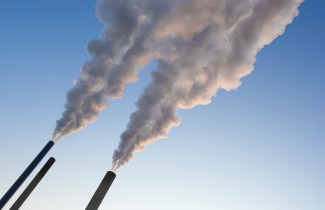International community will look carefully at the United States’ domestic climate policy when it rejoins the Paris Agreement
“The US will rejoin the Paris Agreement under Joe Biden’s presidency, but it will not automatically be regarded as the country to lead climate negotiations,” Professor of Climate Law and Policy Harro van Asselt from the University of Eastern Finland says.
“Other countries will look very carefully at how ambitious and how realistic the United States’ domestic climate policy plans will be.”
The next UN Climate Conference will be held in Glasgow in 2021, and all participating countries are asked to increase their ambition in climate change mitigation.
“Positive signals from the US will help move other countries forward,” van Asselt says.
Van Asselt will start as a tenured Professor of Climate Law and Policy at the University of Eastern Finland in the beginning of 2021. Van Asselt has a long experience in following and analysing international climate negotiations. According to him, climate negotiations are often loaded with unrealistic expectations.
“Climate negotiations have only limited influence on domestic politics, but they can nevertheless help drive domestic climate goals and actions.”
Climate effects of trade agreements are mostly negative
Van Asselt emphasises that more attention should be paid to the ways in which trade agreements can be developed to support the achievement of climate goals. At the moment, the effects of opening up trade on climate change are predominantly negative. Different trade rules can impede climate action by limiting countries’ discretion in adopting trade-related climate policies.
“For instance, the EU is currently considering the adoption of a Carbon Border Adjustment Mechanism (CBAM) as a solution to the carbon leakage problem. For the EU, however, it will be key to ensure that this policy is in line with the rules of the World Trade Organization.”
Nevertheless, trade rules also have the potential to stimulate the international adoption and diffusion of low-carbon technologies and policies.
Reporting maintains transparency of the international climate regime
In Spring 2020, van Asselt, together with the Finnish Institute of International Affairs, secured an Academy of Finland grant for a project that analyses the significance of reporting and assessment in international climate policy. Regular reports by countries, and an expert review of these reports, can strengthen transparency for the international climate regime.
“While this system has been in place for a long time, we actually know surprisingly little about how it functions in practice, and how effective it is. The hope is that improved reporting leads to better policies, greater ambition, and learning over time, but these effects need to be assessed in practice.”
Under the leadership of Professor Kati Kulovesi, van Asselt contributes to the Centre for Climate Change, Energy and Environmental Law (CCEEL) at the University of Eastern Finland. Established in 2013, the CCEEL has grown quickly and succeeded in bringing in important research grants from the European Commission and the Academy of Finland, among others. CCEEL is also internationally recognised as a strong educator in the field through its involvement in the Master’s Degree Programme in Environmental Policy and Law, and in the Nordic Master’s Programme in Environmental Law.
“One of our main strengths is our connection to the real world of climate policymaking, including the international negotiations, and EU and Finnish climate policy. Another strength is that we approach climate law questions from a multidisciplinary perspective, bringing in other social sciences and natural science,” van Asselt says.
Harro van Asselt
Professor of Climate Law and Policy at the University of Eastern Finland, 1 January 2021–
MA in Law, 2002, Vrije Universiteit Amsterdam
PhD, 2013, Vrije Universiteit Amsterdam
Most important roles:
Professor, University of Eastern Finland, 2016–2020
Affiliated Researcher, Stockholm Environment Institute, 10/2018–
Visiting Researcher, Copernicus Institute of Sustainable Development, Utrecht University, 1/2020–
Researcher and Senior Researcher, Stockholm Environment Institute, 4/2012–9/2018
Marie Curie Research Fellow, University of Oxford, 06/2010–12/2011
For further information, please contact:
Harro van Asselt, tel. +358 50 349 6934, harro.vanasselt(at)uef.fi

